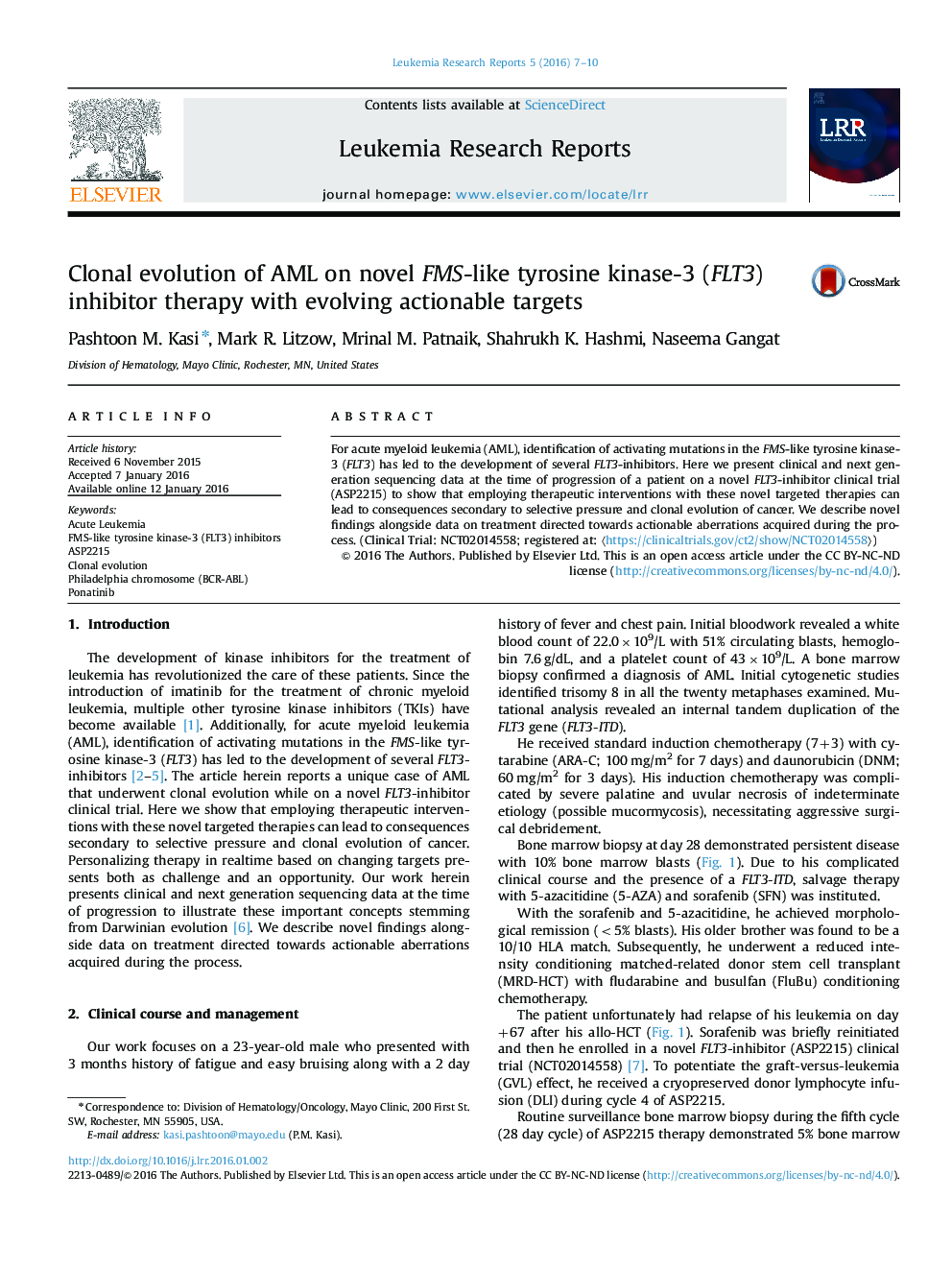| Article ID | Journal | Published Year | Pages | File Type |
|---|---|---|---|---|
| 2140278 | Leukemia Research Reports | 2016 | 4 Pages |
•The article reports on a case of AML that underwent clonal evolution.•We report on novel acquisition of the Philadelphia t(9;22) translocation in AML.•Next generation sequencing maybe helpful in these refractory/relapse cases.•Novel FLT3-inhibitor targeted therapies are another option in patients with AML.•Personalizing cancer treatment based on evolving targets is a viable option.
For acute myeloid leukemia (AML), identification of activating mutations in the FMS-like tyrosine kinase-3 (FLT3) has led to the development of several FLT3-inhibitors. Here we present clinical and next generation sequencing data at the time of progression of a patient on a novel FLT3-inhibitor clinical trial (ASP2215) to show that employing therapeutic interventions with these novel targeted therapies can lead to consequences secondary to selective pressure and clonal evolution of cancer. We describe novel findings alongside data on treatment directed towards actionable aberrations acquired during the process. (Clinical Trial: NCT02014558; registered at: 〈https://clinicaltrials.gov/ct2/show/NCT02014558〉)
